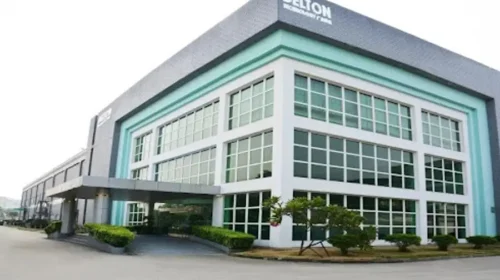New solar policy support, and a stock market cleanup

“It’s too soon to think that the bottom for the solar sector is there. But if you’re a long-term investor and you’re patient, you may have to wait a year or so before you start getting some meaningful appreciation in the stock price.”

By Doug Young & Rene Vanguestaine
China’s solar manufacturing industry illustrates both the promise and pitfalls of Beijing’s ambitious industrial policies. After more than a year of relentless price wars fueled by severe overcapacity, new signs suggest the government may soon introduce additional measures to stabilize this critical sector.
China already dominates global solar installations, largely driven by its goal to lead in green energy. Yet much of the installed capacity risks going unused due to inadequate supporting infrastructure. Recently, Daqo, one of the country’s largest polysilicon producers, indicated that Beijing might soon ramp up policy support, potentially through building additional solar farms to absorb excess production.
However, the real challenge isn’t just adding more solar installations – it’s tackling the chaotic industry landscape. Over the past five years, solar has experienced explosive growth, attracting numerous entrants with high profitability and margins. This surge resulted in excessive production capacity, particularly in polysilicon, where China now holds roughly 2.5 million metric tons of capacity. Daqo alone has around 300,000 metric tons of that, highlighting the severity of the oversupply.
Efforts are underway to impose discipline within the industry, led by trade associations encouraging firms to retire outdated equipment and consolidate smaller, less viable players. Many companies expanded rapidly during the boom times but now face insolvency due to depressed prices. While this shakeout won’t occur overnight, we expect substantial restructuring through 2025 and into 2026.
Investors eyeing China’s solar sector must navigate significant volatility. Stocks of major players remain well below their recent peaks. In our view, it’s premature to conclude the market has reached its bottom. While the sector’s long-term outlook remains positive due to global renewable energy trends, caution is advised. Investors with a long-term perspective might see potential in large, well-capitalized firms with global footprints and robust R&D. Although tempting, investing in smaller players carries considerable risks.
Ending the era of questionable U.S. listings
Meanwhile, Beijing is tightening scrutiny of smaller Chinese companies listing in the U.S., many of which have served more as vehicles for market manipulation than genuine capital raising. We have observed firsthand how these firms aggressively price IPO shares, only to witness rapid declines after trading begins. Others spike inexplicably, reminiscent of the GameStop phenomenon.
Frankly, this regulatory crackdown is long overdue. Since before the global financial crisis, small Chinese firms have exploited lax U.S. listing standards, frequently resulting in delistings due to fraud. A new wave of these problematic companies has emerged recently, often employing “capital market management” tactics – essentially a euphemism for stock price manipulation.
We believe the clampdown signals an irreversible decline in smaller Chinese firms listing in the U.S. Nonetheless, quality companies — especially in the tech and consumer sectors — may still opt for U.S. listings, particularly if Hong Kong’s market becomes crowded with competitors. Recent filings, such as by popular bubble tea chain Chagee, highlight this strategy: choosing the U.S. market to stand out from a crowded Hong Kong market.
Ultimately, fewer questionable listings will enhance market integrity – a positive development for investors. For the solar industry, China’s intervention could usher in much-needed stability. The challenge now is for regulators and industry leaders to execute swiftly and effectively.
About China Inc
China Inc by Bamboo Works discusses the latest developments on Chinese companies listed in Hong Kong and the United States to drive informed decision-making for investors and others interested in this dynamic group of companies.
Subscribe to China Inc on your favorite app:






